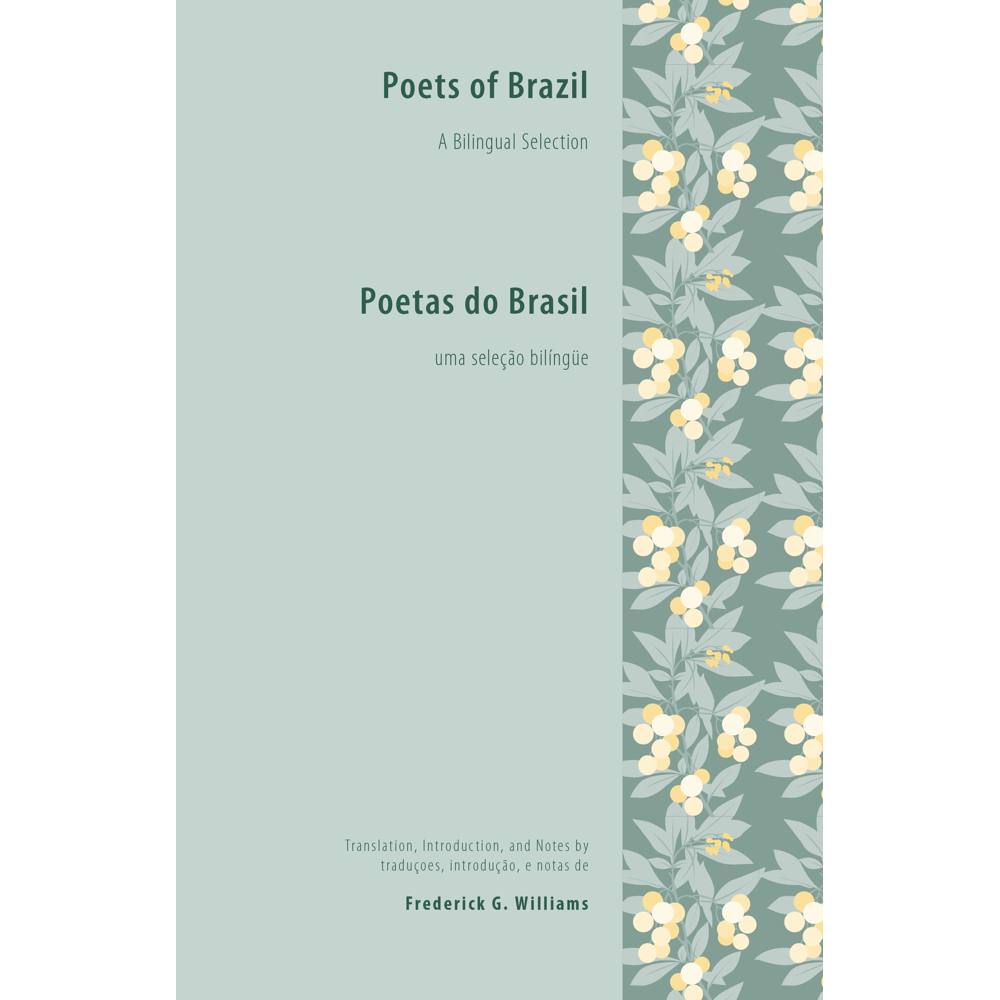FREE SHIPPING on orders of $49 or more. Exclusions apply.
Poets of Brazil (English and Portuguese)
Poets of Brazil (English and Portuguese)

- In Stock
Through this purchase, you are granted a license to the relevant Digital Goods (including but not limited to eBooks, audiobooks, and podcasts) subject to our Digital Goods License.
eBooks and Audiobooks (Digital) are delivered instantly to the Deseret Bookshelf app. They are not compatible with Kindle or other e-reader devices. Digital items cannot be gifted, returned, nor refunded.

This anthology is the first to present the full range of Brazilian poetic creativity and beauty in English translation. English editions of modernist and contemporary poets exist, most notably An Anthology of Twentieth-Century Brazilian Poetry, edited by Elizabeth Bishop and Emanuel Brasil, and the more recent Other Shores: 13 Emerging Brazilian Poets, by Ricardo Corona and Charles A. Perrone. Until now, however, no volume has assembled the works of the great poets of Brazil's earlier periods—those who wrote according to the baroque, neoclassical, romantic, Parnassian, and symbolist styles that were sequentially popular from the seventeenth through the nineteenth centuries.
As all readers know, translation is a difficult task fraught with all manner of complexities and choices faced by translators in their attempt to be faithful to the original poem. These include, but are not limited to, meaning, language usage, style, tone, form, rhyme, meter, rhythm, and a host of other variables that most often do not have a one-to-one correspondence in the target language. Many books have been written and many theories have been applied to achieve the "best" translation. That this is an ongoing quest never fully realized is demonstrated by the repeated translations of the same texts by many different writers. Camões's epic poem The Lusiads (1572), for example, has been translated anew into English nearly every century since its publication as tastes and interests shift, for living languages are never static. In the twentieth century, both a rhymed as well as a prose rendering appeared. Which is best? Which is closer to the original?
Poetas do Brasil
Esta antologia de Poetas do Brasil em edição bilíngue português-inglês, é a primeira que apresenta uma visão panorâmica da criatividade e beleza poética brasileira. Edições em inglês dos poetas modernistas e contemporâneos existem, nomeadamente An Anthology of Twentieth-Century Brazilian Poetry, editada por Elizabeth Bishop e Emanuel Brasil, e mais recentemente Outras Praias: 13 Poetas Brasileiros Emergentes—Other Shores: 13 Emerging Brazilian Poets, editada por Ricardo Corona e Charles A. Perrone. Até agora porém, nenhum volume incluía poemas dos grandes poetas brasileiros dos períodos anteriores, ou seja, os que escreviam de acordo com os estilos barroco, neoclássico, romântico, parnasiano e simbolista, que eram sequencialmente populares do século XVII ao XIX.
Como todo leitor reconhece, traduzir é tarefa difícil, um processo cheio de todo tipo de complexidades e escolhas que o tradutor confronta ao tentar ser fiel ao poema original. Estes incluem, mas não se limitam a, significado, uso de linguagem, estilo, tom, forma, rima, metrificação, ritmo, e muitas outras variantes que em geral não encontram uma correspondência de um a um na língua de tradução. Muitos livros já foram publicados e muitas teorias aproveitadas na tentativa de atingir a melhor tradução. Que esta é uma meta que se procura sempre mas sem nunca se realizar plenamente, é demonstrado pelas repetidas traduções dos mesmos textos por muitos diferentes escritores, ao longo dos anos. O poema épico Os Lusíadas (1572) de Camões, por exemplo, tem sido traduzido ao inglês em quase cada século desde a sua publicação, conforme a mudança de gosto e estilos; pois uma língua viva nunca é estática. No século XX uma tradução rimada e outra em prosa apareceram. Qual é melhor; qual se aproxima mais ao original?
Language: Portuguese
Publisher: BYU Studies

